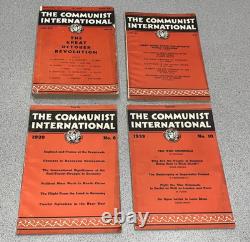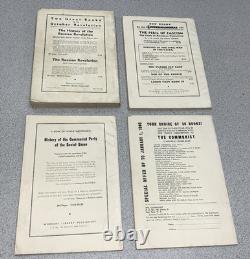
- Index
- Author
- Benson J Lossing (7)
- Benson J. Lossing (11)
- Bruce Catton (6)
- George Bancroft (7)
- Harper (8)
- J.t. Headley (6)
- John H. Thillman (6)
- Louisa May Alcott (38)
- Margaret Mitchell (6)
- Mixed Authors (46)
- Prof Allen E. Fowler (6)
- Rossiter Johnson (6)
- Samuel Butler (5)
- Shelby Foote (63)
- Thomas Mealey Harris (9)
- Time Life (14)
- Ulysses S. Grant (11)
- Unknown (24)
- Various (63)
- Various Authors (21)
- Other (1893)
- Binding
- Region
- Subject
- American Civil War (2)
- American History (8)
- Americana (45)
- Art & Photography (3)
- Bible (14)
- Books On Collecting (3)
- Children's (2)
- Civil War (47)
- Civil War History (2)
- Congressional Record (3)
- Gettysburg Cemetery (2)
- Hardcover W / Jacket (2)
- History (298)
- Illustrated (6)
- Law & Government (11)
- Literature & Fiction (65)
- Military & War (691)
- Military History (3)
- Reference (10)
- Science & Medicine (7)
- Other (1032)
- Topic
- Agriculture (8)
- American (us) (19)
- American Civil War (5)
- American History (6)
- Bible (10)
- Books (7)
- Books, Civil War (30)
- Christianity, Bibles (71)
- Civil War (234)
- Civil War (1861-65) (905)
- Civil War, War (6)
- Classics (45)
- English Civil War (5)
- Historical (46)
- History (10)
- Literature (7)
- Military (21)
- Poetry (6)
- Religion (6)
- United States (20)
- Other (789)
- Year Printed
Communist International Lot (4) October Revolution Spainish Civil War 1937 1939




Lot of 4 Communist International magazine. Volume XIV Number 12 December.
863 Historical Documents of the Great October Socialist Revolution. 887 Manifesto of the Executive Committee of the Communist International. 882 Greetings from the Executive Committee of the Communist International to Comrade Stalin. 885 The Soviet Union and the Working Class of the Capitalist Countries - Georgi Dimitroff.891 The Victory of Socialism in the U. And the People's Front Movement - O. 898 The Dictatorship of the Working Class and the Building of Socialism in the U. 915 Two Decades of Capitalist and Socialist Economy - E. 921 The Leaders and the Masses in the October Socialist Revolution - E.
930 The Peace Policy of the Soviet Union - K. 934 The Victory of Socialism and the Friendship of the Peoples in the U. 945 The Role of the Trade Unions in the October Revolution and in the Building of Socialism - Wilhelm Pieck. 954 The Great October Revolution and Its Influence on the Peasantry in the Capitalist Countries V. 961 Capitalist Barbarism and Socialist Culture - E. 971 The Soviet Youth - R. 979 The Wealth of the Soviet Union - I. The Great October Revolution and the International Labor Movement. 986 Two Anniversaries - J. 990 Greetings from the Central Committee of the Communist Party of Spain. 992 The Struggle of the Chinese People Against the Japanese Aggressor, and. The Great Socialist Revolution in the U. 1002 The Great October Revolution and France - M. 1007 The Land of Socialism and Capitalist Britain - Harry Pollitt. 1013 The Soviet Union and the German Working Class - V. 1018 Greetings from the Central Committee of the Communist Party of the United States.1019 Czechoslovakia and the Great October Revolution in the U. 1023 Reminiscences of the October Revolution and of an Interview with V. Friends of the Soviet Union About the U.
1028 Writers, Scientists and Politicians About the U. 1040 From the History of Factories and Industrial Plants. 1060 What Everybody Should Know About the U. 1073 New People of the Land of the Soviets. 1085 The Pact Against Democracy and Peace - V.
1088 Aye, It Doesn't Depend on You, Mr. 1091 The History of a Certain Date - A. 1093 The Gestapo Against the German People - E. 1096 The Struggle for Trade Union Unity in the U.
1102 The Struggle for Unity in Great Britain - R. 1107 The Belgian Labor Party Congress - T. 1113 About Feuchtwanger's Book, "Moscow, 1937" F. Volume 15 Number 8 August 1938. THREE YEARS AFTER THE SEVENTH. TWO YEARS OF HEROIC STRUGGLE OF THE. THE REAL MASTERS OF GERMANY. ELECTIONS IN THE SOVIET UNION. IN UNITY LIES THE STRENGTH OF THE. THE FOURTH ANNIVERSARY OF THE UNITED. England and France at the Crossroads.The Struggle Between the Trends in the Socialist. The "Historic Claims" of German Fascism. Theory and Practice of the Labor Movement. The International Significance of the Anti-Fascist. The Flight From the Land in Hitler Germany.
The Parliamentary Election in Finland. Political Mass Work and the Mass Organizations. Fascist Agitation in the Near East. The People Must Dig Into Their Own Pockets. Chamberlain and the Czech People.
The War of the Two Hundred Families. An Open Letter to Leon Blum. Why Are the People of England Being Sent to. Fight the War Criminals in Berlin as Well as.
The Bankruptcy of Imperialist Poland. The Second Imperialist War and the Youth. The Communist International, abbreviated as Comintern and also known as the Third International, was a political international which existed from 1919 to 1943 and advocated world communism. Emerging from the collapse of the Second International during World War I, the Comintern was founded in March 1919 at a congress in Moscow convened by Vladimir Lenin and the Russian Communist Party (Bolsheviks) (RCP), which aimed to create a new international body committed to revolutionary socialism and the overthrow of capitalism worldwide. Initially, the Comintern operated with the expectation of imminent proletarian revolutions in Europe, particularly Germany, which were seen as crucial for the survival and success of the Russian Revolution.[3] Its early years were characterized by attempts to foment and coordinate revolutionary uprisings and the establishment of disciplined communist parties across the globe, often demanding strict adherence to the "Twenty-one Conditions" for admission. [4] As these revolutionary hopes faded by the early 1920s, the Comintern's policies shifted, notably with the adoption of the "united workers' front" tactic, aiming to win over the working masses from reformist socialist parties.
[5] Throughout the 1920s, the Comintern underwent a process of "Bolshevisation", increasing the centralization of its structure and the dominance of the RCP within its ranks. This process intensified with the rise of Joseph Stalin in the Soviet Union. [7] From 1934, the Comintern shifted to the Popular Front policy, advocating broad alliances with socialist and even liberal parties against fascism. This was formally adopted at its Seventh World Congress in 1935.
The Comintern played a significant role in organizing support for the Republican side in the Spanish Civil War, including the formation of the International Brigades. However, this period also coincided with the Great Purge in the Soviet Union, during which many Comintern officials and foreign communists residing in Moscow were arrested and executed. With the signing of the Nazi-Soviet Pact in August 1939, the Comintern again changed its line, denouncing the war between Nazi Germany and the Western Allies as an "imperialist war" and abandoning its anti-fascist stance until the German invasion of the Soviet Union in June 1941. [11] As a gesture to its Western Allies in World War II, Stalin unilaterally dissolved the Comintern on 15 May 1943.

